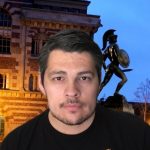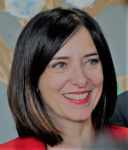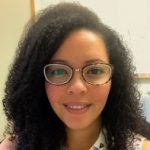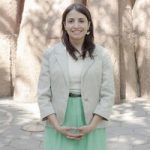2022 SoLAR Executive Committee Nominees
January 21, 2022
Current SoLAR Executive Committee for 2022
President – Maren Scheffel, Ruhr-Universität Bochum (RUB), Germany
Vice President – Yi-Shan Tsai, Monash University, Australia
Secretary – Ioana Jivet, TU Delft, Netherlands
Member at Large – Anouschka van Leeuwen, Utrecht University, Netherlands
Member at Large – Roger Azevedo, University of Central Florida, USA
Member at Large – Shibani Antonette, University of Technology Sydney, Australia
Member at Large – Bart Rienties, Open University UK, UK
Student Member – Rogers Kaliisa, University of Oslo, Norway
The SoLAR Executive is pleased to present the following candidates as nominees for election to the 2022 SoLAR Executive.
There are 14 candidates for FOUR available Member At-Large Positions. 2 candidates are current Executive Members running for their second and final term (* denotes a current Executive Member).
 Stephen J. Aguilar, USA
Stephen J. Aguilar, USA
USC Rossier School of Education
Interest in Learning Analytics (Research Area, etc.) & Interest in serving on the SoLAR Executive Committee: I am an educational psychologist focused on studying and documenting the consequences of learning analytics-based technologies on students’ motivation and self-regulated learning strategies.
I have been active in the learning analytics community for a number of years, and feel that I am now well-positioned to contribute to its continued growth. I think that I can help continue to build relationships between those in learning analytics and educational psychologists/learning scientists who are interested in the role learning analytics can play in students’ learning.
Biography: Dr. Stephen J. AguiIar is an Assistant Professor of Education in the Educational Psychology concentration. His areas of expertise include motivation and self-regulated learning as they relate to the design and implementation of educational technologies. He specializes in learning analytics, the digital equity gap, and gameful approaches to teaching and learning.
His research agenda focuses on educational technologies and includes projects that evaluate the motivational and self-regulatory impacts of learning analytics-based applications. His projects leverage novel methods (i.e., data science techniques) as well as experimental and correlational methods. In another line of research, Dr. Aguilar focuses on projects that document and mitigate the impact of the digital equity gap.
Working Group Interests: Communications or SIG working group (would be good to start a psychology and LA SIG maybe?)
 Alex Biotteau, Singapore
Alex Biotteau, Singapore
National University of Singapore
Interest in Learning Analytics (Research Area, etc.) & Interest in serving on the SoLAR Executive Committee: I have discovered the full potential of Learning Analytics when I joined NUS in 2018. Since then, I have contributed to the ALSET Educational Data Lake, an exciting resource for researchers, policymakers, and innovators. The Data Lake houses data gathered from across our university and provides insights into student performance and academic background, surveys, LMS, and much more. I consider Learning Analytics as is the ideal tool to combine learning sciences, educational policies and disciplinary foci, at any education level.
I collaborate on such projects with colleagues from various disciplines and departments – either researchers, faculty or instructors – and liaise with the university senior management, government agencies and international organisations on these topics. That allows me to understand their own perspective on pedagogical matters, negotiate between their different goals and constraints, and promote Educational Data mining.
Serving on the SoLAR executive committee will allow me to represent such coordinators, who play an essential facilitating role in the university landscape but are not represented by the usual members (learning scientists, instructional designers, technical innovators, etc.). It will also help me advocate the implementation of Learning Analytics tools, especially in Southeast Asia, India and Middle East, where our institute already has connections and a significant outreach.
Biography: A social scientist by training, I am now a Senior Research Fellow and Research Coordinator at the NUS Institute for Applied Learning Sciences and Educational Technology (ALSET). I hold an MSc in Sociology and a PhD in Political Science (Sciences Po, Paris). After a postdoc at Northwestern (USA), I worked several years as a lecturer and an Administrative Director at Sciences Po before moving to Singapore. I managed research and international partnerships (INSEAD, NUS) and worked as a consultant on Digital Skills Training for the World Bank. My current research focuses on Adult Learning and Lifelong Learning Policies.
Working Group Interests: Special Interest Groups (SIGs) Learning Analytics – Asia; Education Working Group; Communications Working Group.
 Justin T. Dellinger, USA
Justin T. Dellinger, USA
University of Texas at Arlington
Interest in Learning Analytics (Research Area, etc.) & Interest in serving on the SoLAR Executive Committee: I have enjoyed being a part of the learning analytics community ever since I attended my first LAK conference in 2015 at Marist College. Since LAK’15, I have had the opportunity to collaborate on research projects and capacity building initiatives with scholars and organizations across the globe. One such initiative is the Learning Analytics Learning Network, where our lead team co-organizes tutorials, workshops, and presentations to develop knowledge and skills by forming partnerships with existing hubs. The intent is to 1) promote and showcase the amazing work being done by individuals, labs, working/special interest groups, etc., 2) curate recordings and materials that can be used by anyone at any time, and 3) to help connect people in order to support the growth of the field. Additionally, I am co-leading a graduate learning analytics program at my university which includes administration, teaching, and research. I feel that roles such as these have prepared me well to serve the community as part of the SoLAR executive committee. I would love to give back to SoLAR and its members, which has helped me grow as a scholar through its events, network, resources, and funding (Erik Duval LASI scholarship and Doctoral Consortium).
Biography: Justin T. Dellinger is the coordinator for the Master of Science in Learning Analytics program in the Department of Psychology at the University of Texas at Arlington (UTA). Prior, he served as Associate Director for the Learning Innovation and Networked Knowledge (LINK) Research Lab in the Center for Research on Teaching and Learning Excellence at UTA. He has experience teaching in K-12, university, and open online courses and serves as co-lead for the Learning Analytics Learning Network and the Digital Learning Research Network. He earned his Ph.D. in Educational Leadership and Policy Studies where he investigated learning analytics adoption and implementation in K-12 schools. His current research interests include learning analytics adoption and policy, multimodal learning analytics, and learner pathways.
Working Group Interests: Education, Communications, Membership
 Blaženka Divjak, Croatia
Blaženka Divjak, Croatia
University of Zagreb, Croatia
Interest in Learning Analytics (Research Area, etc.) & Interest in serving on the SoLAR Executive Committee: My interest in learning analytics started in 2012, when I served as the Vice-Rector of the University of Zagreb. As the University encompasses more than 70.000 students, obtaining and analysing learning data was of utmost importance for enhancing the quality of teaching and learning. My mathematical background and interest in e-learning supported my intense engagement in the area of learning analytics, which continues to date. Between 2015 and 2017, I was engaged in a nation-wide project “eSchools”, in which I coordinated the design of the national learning analytics system for primary and secondary schools. I have taken part in a number of projects dealing with learning analytics and one of my current interests relates to linking learning analytics with learning design. I believe that my experience on the strategic decision-making level, my expertise gained through more than 30 years of teaching, as well as interdisciplinary research related to learning analytics, can provide a solid foundation for me to serve as a member of the SoLAR Executive Committee.
Short biography: Professor Blaženka Divjak, PhD, is a Full Professor of Mathematics and Information Science at the University of Zagreb, Faculty of Organization and Informatics. She served as Vice-Rector for students and study programs at the University of Zagreb (2010-2014). She was the Croatian Minister of Science and Education (2017-2020), leading four major reform processes: curricular reform of general education, reform of vocational education and training, enhancement of relevance of higher education and excellence of research. She chaired the EU Council of ministers for education and Council of ministers for research and space during the Croatian presidency (January – June 2020). In that period, she coordinated the EU response to the COVID-19 crises in education and research. She has been a coordinator and a researcher in over 30 (inter)national projects. Currently, she coordinates the “Relevant assessment and pedagogies for inclusive digital education” Erasmus+ project, as well as a work package within the “Digital and entrepreneurial skills for European teachers” Erasmus+ project, both of which research learning analytics. Her area of interest and expertise, besides mathematics, includes curriculum development, e-learning, learning design, assessment, learning analytics, strategic decision-making, the Bologna process, as well as the social dimension of higher education.
CV: https://www.foi.unizg.hr/en/staff/blazenka.divjak
Working Group Interests: Education Working Group, Special Interest Groups Working Group, Events Working Group
 Nia Dowell, USA
Nia Dowell, USA
University of California, Irvine
Interest in Learning Analytics (Research Area, etc.) & Interest in serving on the SoLAR Executive Committee: I have been involved with the Learning Analytics and Knowledge (LAK) community for over seven years. I have served as a SoLAR executive committee member and co-chair of the SoLAR Inclusion working group the last two years. This experience has allowed me to deepen my engagement with the community to help shape and guide how SoLAR continues to serve the broader learning analytics community. My interest and commitment to learning analytics has motivated the creation of the Language and Learning Analytics Lab (LaLA-Lab) at UCI. The LaLA-Lab includes researchers with backgrounds in cognitive and learning science, information, psychology, and statistics. Within the LaLA-Lab, I bring together an interdisciplinary group of students and faculty who explore the intersections of technology with teaching, learning, and education, with a particular focus on learning analytics, educational data mining, and collaborative engagement. The LA-Lab takes a multi-disciplinary approach that builds on theories and methods in the learning sciences, cognitive psychology, human-computer interaction, artificial intelligence, and computational social sciences. My team and I conduct basic research on sociocognitive and affective processes across a range of educational technology interaction contexts and develop computational models of these processes and their relationship to learner outcomes.
Biography: Nia Dowell is an Assistant Professor in Education at UC-Irvine and director of the Language and Learning Analytics Laboratory (LaLA-Lab). Her primary interests are in cognitive psychology, discourse processing, group interaction, and learning analytics. Her research focuses on using quantitative measures of language and discourse to reveal the dynamics of socially significant cognitive and affective processes. She is currently applying computational techniques to model discourse and social dynamics in a variety of environments including small group computer- mediated collaborative learning environments, collaborative design networks, and massive open online courses (MOOCs). Her research has also extended beyond the educational and learning sciences spaces and highlighted the practical applications of computational discourse science in the clinical, political and social sciences.
Working Group Interests: Current Co-Chair of Inclusion working group
 Isabel Hilliger, Chile
Isabel Hilliger, Chile
Pontificia Universidad Católica de Chile
Interest in Learning Analytics (Research Area, etc.) & Interest in serving on the SoLAR Executive Committee:
I have been involved in the SoLAR community for a number of years commencing with exploring the opportunities and challenges regarding learning analytics adoption at an institutional level, while also identifying educational needs for LA in Latin America. I have had the honour of being part of the organizing committees for LASI21 and LAK22, as well as being a member of the SoLAR Executive for the past two years, Chair Events and Treasurer for 2021. It has been a challenge over the past two years with the impacts of COVID requiring deep thought on how to engage different types of people remotely, particularly early career researchers as well as working to minimize financial impacts to the Society. Firstly, I would greatly like to continue being part of the SoLAR executive in order to contribute to the construction of a geographically diverse community that exchanges knowledge and best practices regarding learning analytics adoption. I am interested in promoting events that are generated at the local level (e.g., SoLAR LASI Locals), but also explore ways to connect different communities and promote collaborative efforts in LA research on a larger scale. Secondly, I would like to keep working in capacity building for underrepresented communities, offering opportunities to grow as learning analytics researchers in LA small and large events. In the future, there is the challenge of incorporating lessons learned into hybrid or other types of events, along with enriching SoLAR webinars and other networking and capacity building opportunities.
Biography: Isabel Hilliger is the Associate Director for Assessment and Evaluation and Assistant Professor of Practice at the School of Engineering in Pontificia Universidad Católica de Chile (PUC-Chile). Isabel received a Bachelor of Engineering and Ph.D. degree in Engineering Sciences from PUC-Chile (Computer Science field), and a Master’s degree in Politics, Organization and Leadership Studies from Stanford Graduate School of Education in the U.S. Between 2011 and 2013, Isabel led the development of indicators to evaluate school support programs in Chile as National Sub-Coordinator of Pedagogical Technical Assistance in the Ministry of Education of Chile. Since 2013, she has been involved in different projects in general and higher education (both in Chile and abroad). During 2018, she was a research fellow at the university innovation program at Laspau, a Harvard University affiliated organization, conducting research regarding the design and implementation of indicators and tools based on learning analytics. Currently, she has just finished her first term as an Executive Member of SoLAR, including as an Office Bearer (Treasurer) and Chair Minor Events. and her research focuses on the development of processes for the continuous improvement of higher education curricula in Latin America, using analytical tools centred on the needs of managers, teaching staff, and students.
Working Group Interests: Current Chair of Events Working Group, Current member of Communications Working Group
 Andy Krumm, USA
Andy Krumm, USA
University of Michigan
Interest in Learning Analytics (Research Area, etc.) & Interest in serving on the SoLAR Executive Committee: My colleagues and I have developed tools and strategies that researcher-practitioner partnerships can use to analyze complex datasets from digital learning environments, assessment systems, and data registries. Many of these tools and strategies are detailed in a book titled “Learning Analytics Goes to School: A Collaborative Approach to Improving Education” written with Barbara Means and Marie Bienkowski. Currently, I co-direct the Medical Education Design Lab where my colleagues and I are developing data-intensive strategies for improving the training of surgeons. Example strategies include using natural-language processing to assess the quality of feedback trainees receive and using IRT-based measurement models to synthesize longitudinal performance-based assessments. My interest in serving on the SoLAR Executive Committee—as well as specific working groups—is based in helping to build the field of learning analytics around using complex datasets to improve health and education systems.
Biography: Andrew Krumm, PhD, is an Assistant Professor of Learning Health Sciences, Assistant Professor of Information, and Affiliated Faculty with the Michigan Institute for Data Science (MIDAS) at the University of Michigan. His research combines learning analytics and quality improvement. Prior to joining the University of Michigan, Andrew was the Director of Learning Analytics Research at Digital Promise and a Senior Education Researcher in the Center for Technology in Learning at SRI International where he directed the Improvement Analytics group. Andrew earned a PhD in Learning Technologies from the University of Michigan and a BA and MA in Elementary Education and Instructional Technology, respectively, from the University of Northern Iowa. Andrew has led and supported multiple collaborative data-intensive improvement projects with state departments of public instruction, large school districts, and the Society for Improving Medical Professional Learning (SIMPL).
Working Group Interests: I would be interested in supporting the Inclusion Working Group and the Education Working Group.
 Jionghao Lin, Australia
Jionghao Lin, Australia
Monash University
Interest in Learning Analytics (Research Area, etc.) & Interest in serving on the SoLAR Executive Committee: My research interests in learning analytics focus on applying the artificial intelligence algorithms to analyse the teacher-student interaction process (e.g., verbal communication, body gesture, and emotion) and further demonstrate the insights contributing to the pedagogical theory and practice. My interests in serving on the SoLAR Executive committee include assisting in organising the annual learning analytics conference (LAK) and also the LASI workshop.
Biography: Jionghao Lin is a PhD student in the Centre for Learning Analytics at Monash University, Melbourne, Australia. He is supervised by Dr Dragan Gasevic, Dr Guanliang Chen and Dr Sharon Oviatt. His primary research interests focus on the areas of learning analytics, natural language processing, and affective computing. Currently, Jionghao is mainly working on applying artificial intelligent technologies to understand and optimise the learning environment.
Working Group Interests:Events Working Group and Communications Working Group
 Rafael Ferreira Mello, Brazil
Rafael Ferreira Mello, Brazil
CESAR University
Interest in Learning Analytics (Research Area, etc.) & Interest in serving on the SoLAR Executive Committee: My primary interest in learning analytics include computer-supported collaborative learning applications in online environments and writing analytics in essay production and feedback provision. In particular, I am interested in applying learning analytics to develop methods to (i) investigate the dynamics of online communities in learning environments; (ii) enhance the quality of the written feedback provided by instructors using natural language processing; (iii) support the development of students’ written skills through technology. My current involvement with the community includes, among other things, the participation in the Learning Analytics for Latin America (LALA) SIG as chair for Education, the involvement in the organization of LAK 2022 as workshop chair, and the offering of workshops at LASI 2021 and 2022. Moreover, I am also keen to build up the capacity for learning analytics research and practice in underrepresented regions (especially in Latin American). My current position at university as Chair of Education Technology Adoption and Data Analytics gives me the resources and connections to work in this direction. Finally, I am willing to collaborate with activities of different SOLAR working groups such as inclusion, events and education.
Biography: Rafael Ferreira Mello has a Ph.D. in computer science with research interests that span across learning analytics and natural language processing. He is a lecturer and researcher at the CESAR University in Brazil, where he holds the position of Chair of Education Technology Adoption and Data Analytics. In the last few years, Dr. Mello has supported the adoption of Learning Analytics techniques and tools in several institutions in Brazil. One recognition of his contributions is that Dr. Mello is the leading researcher at two national-level projects, funded by the Brazilian Ministry of Education, aiming the development of (i) natural language processing and learning analytics techniques to enhance students written productions and (ii) Learning Analytics Dashboards to support decision-making regarding the national education plan. Moreover, he has worked on several multinational research projects, which involve institutional and organizational partners in Europe, Australia, and Latin America. He has published in the leading international journals and conference proceedings in the fields of his research. He also served as an assistant editor and reviewer for several journals and conferences, including the International Learning Analytics & Knowledge Conference, Journal of Learning Analytics, Computers and Education, British Journal of Educational Technology, and Internet and Higher Education.
Working Group Interests: Inclusion Working Group, Events Working Group, Education Working Group
 Konstantinos (Kostas) Michos, Switzerland
Konstantinos (Kostas) Michos, Switzerland
University of Zurich, Institute of Education
Interest in Learning Analytics (Research Area, etc.) & Interest in serving on the SoLAR Executive Committee: My main interest lies in the use of learning analytics by teachers. In my doctoral dissertation, I proposed a framework for collective inquiry with data analytics that targets teachers’ professional development. I am interested in both the research and practice of learning analytics for teachers considering the increasing use of learning analytics tools in K-12 and Higher Education. I am interested to serve on the SOLAR Executive Committee and bring an interdisciplinary perspective to research and practical challenges in the field. I lived and worked in different countries across Europe (Greece, Germany, Spain, Switzerland) and I would like to connect learning analytics researchers and practitioners around the world. I am interested to work with international colleagues on issues related to pedagogical challenges of learning analytics, strengthening community networks and education in learning analytics.
Biography: Konstantinos (Kostas) Michos is a postdoctoral researcher and lecturer in the Institute of Education at the University of Zurich in Switzerland. He received his M.Sc. in Educational Technology from the University of Saarland in Germany and his PhD in Information and Communication Technologies from Pompeu Fabra University in Spain. Prior to his studies abroad, Konstantinos received a teaching diploma as a primary school teacher from the University of Thessaly in Greece. In his doctoral thesis, he conducted research on learning analytics for teachers and has participated in several Spanish and and European projects related to learning analytics. He is currently a lecturer at a teacher education program for upper secondary education in Switzerland and teaches a course on Learning Analytics for pre-service teachers. His research interests lie in the fields of Educational Technology and Teaching, Teacher Education, Learning Analytics and Learning Design.
Working Group Interests: Special Interests Group, Education Group, Inclusion Group, Communications Group
 Pablo Munguia, Australia
Pablo Munguia, Australia
Flinders University
Interest in Learning Analytics (Research Area, etc.) & Interest in serving on the SoLAR Executive Committee: I am interested in understanding behavioural patterns, metric design, scaling solutions for universities, and the philosophy of learning analytics. I have extensive teaching experience designing activities that allow data harvesting and feeding back to students for reflection; and working at university-level scales, designing dashboards and metrics that provide insights at broad scales. I believe strongly in collaboration amongst universities to enrich our knowledge through sharing and have been instrumental in developing a number of critical partnerships. I have been actively engaged with SoLAR activities in the last few years (including being RMIT’s institutional representative and runner up for best reviewer at LAK19) and believe I can do more for the Society’s initiatives and membership. The LAK, LASI and ALASI workshops I have delivered centred on deployment tactics to help scale up learning analytics activities within institutions and I would like to continue helping members in this space. I am a keen proponent of inter-institutional collaboration, as exemplified by creating the created the AUS-NZ Canvas LMS group and would like to promote these types of collaborations amongst SoLAR members and institutions. I would like to help the Society increase its lobbying presence in education and EdTech companies leveraging the powerful insights created by our research and practice.
Biography: Pablo is an Associate Professor and Associate Director of the Student Learning Support Service at Flinders University. He and his academic team create resources and deliver learning support to all students using learning analytics via programs and initiatives. Previously Pablo was the Director of Learning Analytics at RMIT University, leading a team of 15 data scientists and analysts tasked with creating and delivering university-wide projects and solutions spanning governance, data infrastructure, learning and teaching insights and academic promotion. Achievements include the creation of centralized databases; design and deployment of student data insights for academic and university governance; and metrics to help improve learning and teaching and student belonging. Prior to migrating to Australia Pablo was an Assistant Professor at the University of Texas at Austin where he started to blend his statistical skills learned as a Marine Ecologist (BSc 2000, Universidad de Guadalajara, PhD 2006, Florida State University, postdoc Smithsonian Institution 2006-2008) with his teaching passion and flipped classroom practice.
He has published over 60 peer reviewed articles, has numerous accolades for teaching and research, and was a Fullbright Scholar. Pablo is currently the Editor in Chief of a well-established marine biology journal and was instrumental in improving its IF from 1.7 to 2.3 and serves on a number of other editorial boards.
Working Group Interests: Education Working Group – promote educational resources for practitioners and institutions (for example). Special Interests Working Group – help establish a better link between EdTech companies and the Society, to ensure proper feedback to future innovations via focused research.
 Paul Prinsloo, South Africa
Paul Prinsloo, South Africa
University of South Africa
Interest in Learning Analytics (Research Area, etc.) & Interest in serving on the SoLAR Executive Committee:
My involvement in the learning analytics through my research and collaboration bears testimony of my passion and commitment not only for the field of learning analytics, but also a commitment to critical and engaged scholarship. Emerging from my own multi-disciplinary academic background, as well as my own positionality regarding my own intersectionality as scholar from the Global South, my research bears testimony of a sustained and critical concern for the ethical implications of the collection, analysis, and use of student data, and increasingly the political/ethical impact of human-algorithmic decision-making systems and processes on students’ lives and learning journeys. My own identity rooted in the discourses pre- and post-apartheid, has shaped, and continue to shape my personal sense of the impact of the collection and use of personal and behavioral data on the lives of individuals, especially those in marginalised communities.
Should I be elected to serve in the SOLAR Executive, I hope to support and foreground critical considerations pertaining to how learning analytics shape individuals’ learning journeys and futures. As learning analytics is an emerging research focus and practice in the Global South, I hope to ensure the growth of critical scholarship in and the institutionalisation of ethical learning analytics
Biography:
I am a Research Professor in Open and Distance Learning (ODL) in the Department of Business Management, College of Economic and Management Sciences, University of South Africa (Unisa). I am also a Visiting Professor at the Carl von Ossietzky University of Oldenburg (Germany), a Research Associate for Contact North I Contact Nord (Canada) and a Fellow of the European Distance and E-Learning Network (EDEN) and serve on several editorial boards. In the South African context, I have a B3 research rating confirming my considerable international reputation for the high quality and impact of his research outputs. Since the birth of learning analytics as a distinct, interdisciplinary research field and practice, my research into the ethical issues in learning analytics, and recently the potential of as well as the political/ethical issues at the intersections of human-algorithmic decision-making systems, is internationally recognised as providing innovative and important perspectives. While learning analytics is still an emerging research focus and practice in the broader Global South and specifically on the African continent, my collaboration with various international and African scholars raises important considerations for the broader learning analytics community.
Working Group Interests: I would love to participate in and contribute to the Inclusion and Education Working groups as well as table a proposal for a SIG for the African continent.
 Joshua Quick, USA
Joshua Quick, USA
Indiana University
Interest in Learning Analytics (Research Area, etc.) & Interest in serving on the SoLAR Executive Committee: My interest in serving on the SoLAR executive committee stems from my research interests and professional experience in supporting faculty driven research. I firmly believe that extended collaboration around shared problems supports the development and growth of learning analytic processes, which I have pursued in various avenues. For example, I have worked in collaboration with multiple investigators around an Oregon State University sponsored project in learning analytics use within higher education contexts. I hope to continue to contribute to directed efforts in supporting more targeted, consequential, and inclusive learning analytics research practices in general and supporting SoLAR efforts to develop inclusive and expansive learning analytics communities.
I have three intersecting elements in my research. First, I work towards the integration of more socio-cultural frameworks and their implications for teaching, learning, and assessment into the development, application, and evaluation of measures of and for learning within digital environments. Second, I focus on the design, implementation, and evaluation of analytic measures and procedures in relation to authentic teaching and learning environments as part of an ongoing design-based research framework. Third, I seek to support the ethical and inclusive integration of analytic measures into said teaching and learning contexts.
Biography: I am pursuing my Ph.D. in the learning sciences and also occupy a full-time position as the Principal Learning Data Analyst for the eLearning Research & Practice Lab at IU. Prior to my time at IU, I earned my M.S. in Applied Statistics and my B.S. in Psychology (with heavy doses of philosophy). My research centers on the integration of sociocultural frameworks of teaching and learning into the development, application, and evaluation of measures using networked teaching and learning data. My aim is to develop these metrics for impactful use in supporting students to agentically develop, obtain, and improve their learning outcomes. I have published in, to name a few, LAK proceedings, Technology, Mind, & Behavior, IEEE Transactions on Learning Technologies, and Online Learning. Additionally, I support faculty use of institutional teaching and learning data for their own research aims and facilitate the development of the use of institutional teaching and learning data in rigorous, peer reviewed research. Prior to supporting faculty research, I worked more directly within IU’s central IT services and developed analytic processes and measures for administrative use. My work, however, has developed towards more theoretical and translational ends.
Working Group Interests: Inclusion Working Group, Special Interest Working Group, Education Working Group
 Dr. Tyrone Smith Jr., USA
Dr. Tyrone Smith Jr., USA
Udemy
Interest in Learning Analytics (Research Area, etc.) & Interest in serving on the SoLAR Executive Committee: Being a global strategy and people analytics leader my interests in learning analytics are in the research area because I help build high-performing collaborative teams and effectively partnering with business leaders to identify, analyze and solve complex problems for effective achievement of goals. I am the head of People Analytics and Insights at Udemy, and I clearly understand learning analytics and its usefulness to learners. I have provided human capital, management, people analytics and workforce planning solutions at various organizations including John Deere, Ryan, a global tax services and software provider, General Motors Financial and Oracle. As a researcher I use the data I get from the research to inspire human resource innovation and transformation.
I would appreciate a chance in serving in the SoLAR executive committee as a regular member because I believe the skills and the knowledge I have achieved in my academic and interactions with learners in society would go a great height in ensuring that proper and adequate skill building, learning and research is done on learning analytics and the information acquired is useful.
Biography: Tyrone Smith Jr. is a global strategy and people analytics leader who inspires human resources innovation and transformation. He has provided human capital management, people analytics, and workforce planning solutions at various organizations including Ryan, a global tax services and software provider; GM Financial; John Deere; and Oracle. Tyrone is an award-winning scholar, accomplished leader, consultant, coach, practitioner, and researcher who builds high-performing collaborative teams and effectively partners with business leaders and team members to identify, analyze, and solve complex business problems that help the organization meet its goals to drive business outcomes.
His academic career includes a BS in business administration from Florida Agricultural and Mechanical University, a Global MBA from the University of Houston-Victoria, and an EdD in leadership and innovation focused on his research interests in people analytics for talent management and the future of work from St. Thomas University.
Working Group Interests: Inclusion and Education Working Group
Voting Information: All SoLAR individual and students members are eligible to vote for all positions. Links to access the online voting system will be sent to SoLAR members via email starting on January 21, 2022 (Eastern Time). Voting will end on February 4, 2022 at 11:59pm Eastern. All members who join SoLAR by February 2, 2022 will be eligible to vote and will receive a ballot after successfully joining SoLAR. Any questions, please email solarsocietymgmt@gmail.com.
